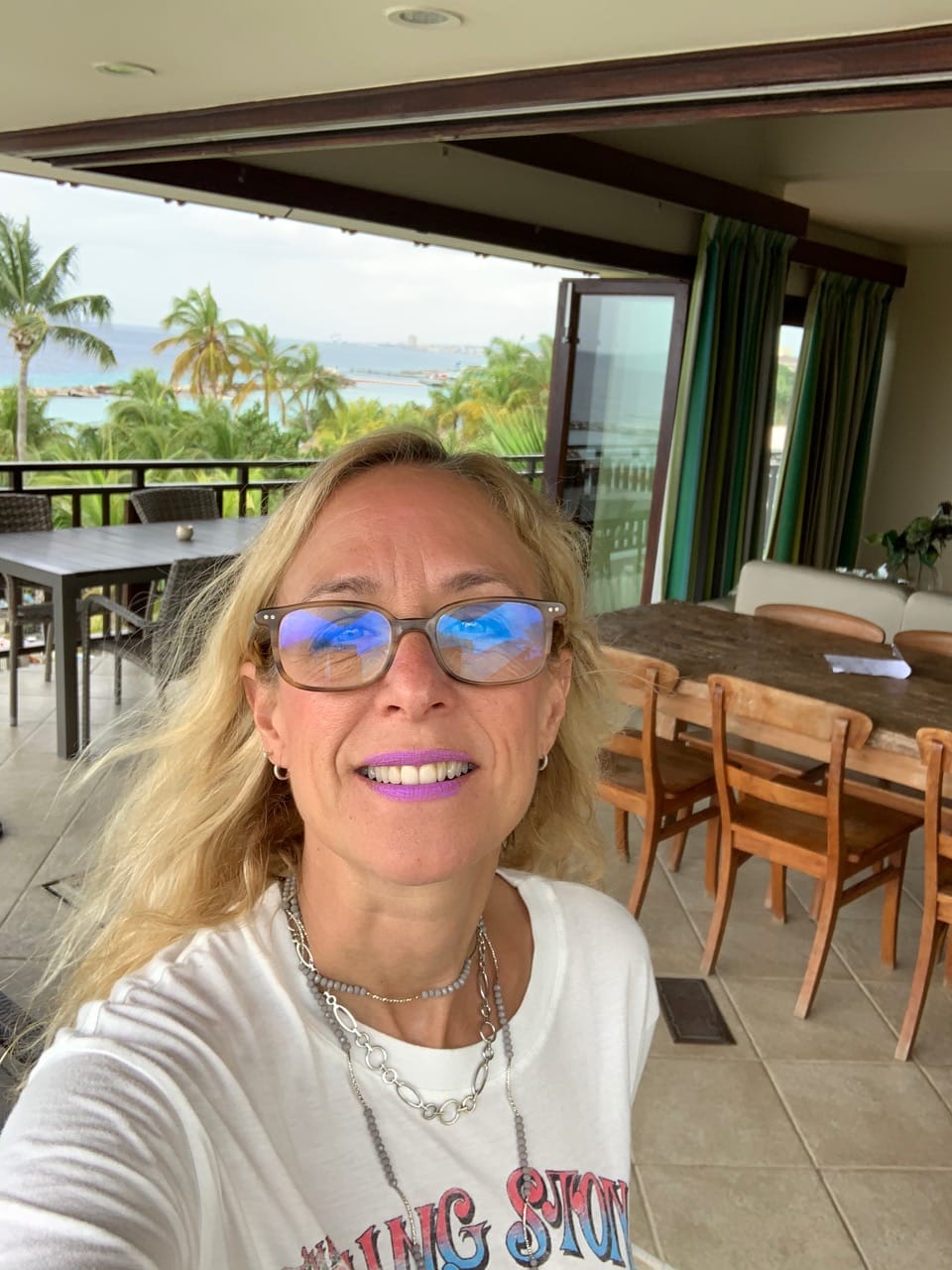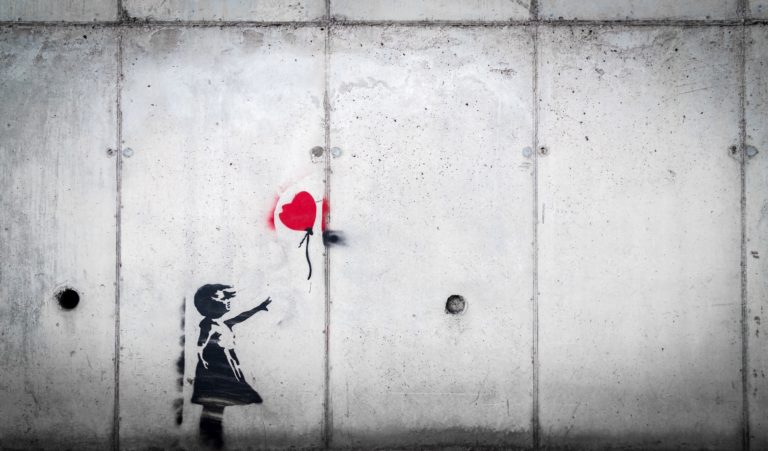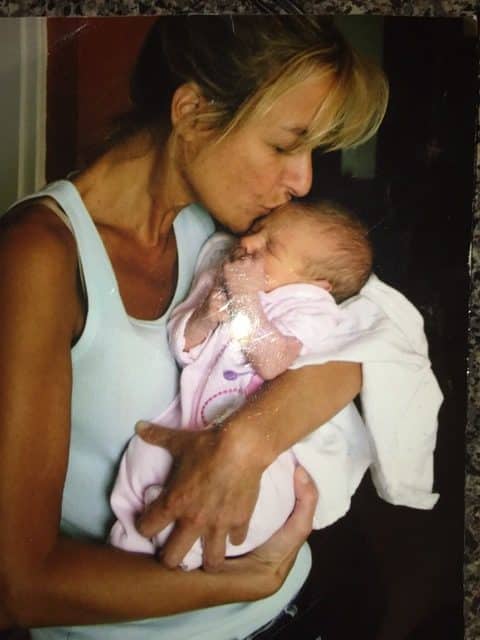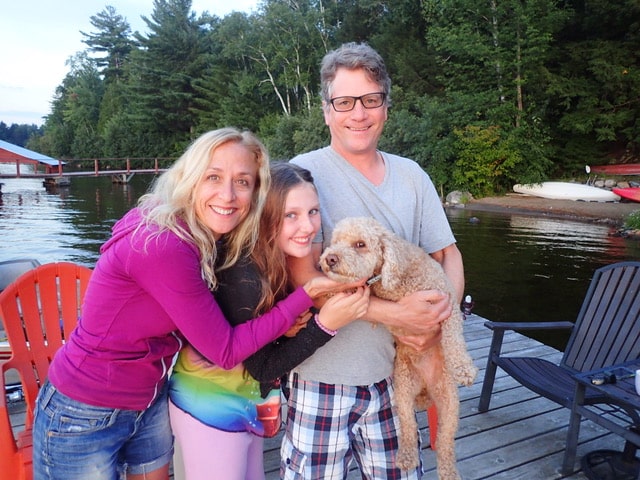Becoming a Mother


Like many others, I’ve suffered the pain of multiple miscarriages. I stopped counting at 10...and yes, there were more. For me, the pain and suffering was silent. I felt like I shouldn’t talk about it, and so I held it in. People around weren’t always silent though. They told me lots of things, although well intentioned, almost none of them helpful.
I heard things like, “Don’t worry, when it’s the right time it will happen”, or “You need to just relax”. Telling someone to relax can actually have the opposite effect, especially when it’s connected to something as important as becoming a mother. Someone once told me “Maybe you married the wrong man.” An acquaintance told me, “Everyone goes through one miscarriage, it’s not a big deal.” At my last IVF appointment, after countless losses, the doctor said, “Why do you keep doing this to yourself?” Despite all of the love and support I did receive from friends and family, the loneliness stemmed from the lack of compassion in the medical system.

Like many others, I’ve suffered the pain of multiple miscarriages. I stopped counting at 10...and yes, there were more. For me, the pain and suffering was silent. I felt like I shouldn’t talk about it, and so I held it in. People around weren’t always silent though. They told me lots of things, although well intentioned, almost none of them helpful.
I heard things like, “Don’t worry, when it’s the right time it will happen”, or “You need to just relax”. Telling someone to relax can actually have the opposite effect, especially when it’s connected to something as important as becoming a mother. Someone once told me “Maybe you married the wrong man.” An acquaintance told me, “Everyone goes through one miscarriage, it’s not a big deal.” At my last IVF appointment, after countless losses, the doctor said, “Why do you keep doing this to yourself?” Despite all of the love and support I did receive from friends and family, the loneliness stemmed from the lack of compassion in the medical system.
When I was 36, I had my first miscarriage. I was 8 weeks pregnant and when I started to have cramps, a doctor sent me in for an ultrasound. I remember being surrounded by all of these happy, pregnant women. They called me into a room that was divided by a thin curtain. I remember that curtain vividly. People were having ultrasounds beside me and I could hear their conversations, their delight.
Loss and joy belong in different parts of the hospital.
I snuck out to the washroom and realized I was bleeding a lot. I said to the doctor, “It’s over, I’m having a miscarriage.” After doing an ultrasound, she responded, “Are you sure you were even pregnant?” No one put a hand on my shoulder and explained things to me in a compassionate way. That was my introduction to this world of fertility. I came home and didn’t know what to do. I wanted to numb the pain, to acknowledge it all somehow, but I didn’t know how. Instead, I directed of my pain toward becoming pregnant again.
Everyone told me that I was young, that I’d be fine, but after my second miscarriage I realized I had to advocate for myself. I got into a fertility clinic, but even there the doctor was very matter of fact. After my 6th loss, she said there’s nothing more she could do for me. We did all of the testing, but it all came back normal. Unexplained, recurrent miscarriage. And so, I started the IVF process. I remember being in the waiting room and seeing all of these other women waiting to get their blood drawn. That room was not a room of comfort, and there was no talk of ceremony. The women had blank stares on their faces, knowing we were all going through the same thing but unsure how to talk about it or support each other.
People would tell me about their own experiences, trying to relate, but it just made me feel more alone. I wish people would have acknowledged my pain, that it was there and would likely always be there. I needed to be reminded how to grieve, and that the losses would become part me. I never did any rituals for my lost babies because they didn’t feel real to the world. But they were real to me.
People would tell me about their own experiences, trying to relate, but it just made me feel more alone. I wish people would have acknowledged my pain, that it was there and would likely always be there. I needed to be reminded how to grieve, and that the losses would become part me. I never did any rituals for my lost babies because they didn’t feel real to the world. But they were real to me.
Looking back, what I wished for was more compassion. Looking forward, these are my wishes for another woman going through this experience:
I wish people will give her the space to be sad, the space to feel loved.
I wish people won’t focus on what went wrong or what will be.
I wish for her to hear the words, “I am so sorry, this sucks. Let me sit with you.”
I wish she’ll learn in high school that there’s no guarantee she’ll have a child naturally.
I wish the hospital staff will put an arm around her when they tell her.
I wish she gets permission to take time off of work.
I wish she’ll have people sit and talk with her about what she’s feeling.
I wish she’ll learn that there are so many ways to become a mother.
That’s it. It feels so simple, and yet I never got any of that. I wish someone had told me to slow down and grieve. I was determined to have a baby, I was like a mad woman. I was haggard, bruised, exhausted, and unhealthy because I didn’t know my own limits. I went to a place where I couldn’t stop, and it was terrifying.

And then, we were chosen.
I did become a mother, and while it may not have been the way I first envisioned, I feel like if there was a reason for all of this suffering, it was for her. Three months after signing up to adopt a child, we were chosen to be parents. The birth mother was due in 5 weeks, and it all happened so fast. My daughter is now 12 and I hold onto her so tight. I sometimes wonder if my fierce protectiveness is because of the tremendous amount of loss I suffered. She’s my baby, the baby I longed for. Becoming her mother didn’t take away all of the scars and the pain, but it did allow me to reflect and give meaning to it all. After all, all of it is what got me here, with her.
I only wish I didn’t have to suffer in silence for so long. All of these years later, and I’m just now starting to give voice to my experiences. We need to acknowledge the losses and the pain, as well as the deep desire, the pressure, and the determination that goes along with becoming a mother.

And then, we were chosen.
I did become a mother, and while it may not have been the way I first envisioned, I feel like if there was a reason for all of this suffering, it was for her. Three months after signing up to adopt a child, we were chosen to be parents. The birth mother was due in 5 weeks, and it all happened so fast. My daughter is now 12 and I hold onto her so tight. I sometimes wonder if my fierce protectiveness is because of the tremendous amount of loss I suffered. She’s my baby, the baby I longed for. Becoming her mother didn’t take away all of the scars and the pain, but it did allow me to reflect and give meaning to it all. After all, all of it is what got me here, with her.
I only wish I didn’t have to suffer in silence for so long. All of these years later, and I’m just now starting to give voice to my experiences. We need to acknowledge the losses and the pain, as well as the deep desire, the pressure, and the determination that goes along with becoming a mother.

About Joy F.
Joy lives in Toronto, Canada and is a wife, a friend, a former social worker and advocate for youth, a former psychotherapist, and, finally, a mother.

About Joy F.
Joy lives in Toronto, Canada and is a wife, a friend, a former social worker and advocate for youth, a former psychotherapist, and, finally, a mother.
